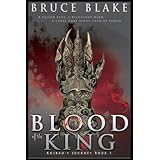Most of our readers and contributors are Indie writers like myself. We have a few lucky mainstream published authors in our midst that I envied from the start of my writing endeavors. I decided to self-publish with Createspace after a 18 months of inertia on my agent's side and impatient waiting for things to happen on mine. Promoting my work and creating a platform that every author needs was the next step to getting noticed and making sales. This website is part of it.
Like me, you probably eagerly take every promotional opportunity with interviews and guest blogs or radio/ podcast interviews and tweet the heck out of your PC and mobile device. I follow every blog giving advice on writing, editing and selling my product. I also carry business cards and books in my car and steer a conversation my book's way when appropriate. That plus getting book reviews and writing press releases. Not to forget the networking. Still- it's a long, arduous road to success --whichever way you define it.
After a year of trickling book sales, I learned that there are on demand publishers that can make it into the Ingram's distribution list and via that to the holy grail of an established book store that actually has my printed copy on its shelves. Some authors only concentrate on eBooks, but a physical book in my hands, for me, was my humble yardstick of success. Half a year, some added chapters and various editing hurdles and publishing obstacles later, a very a handsome man looks at the potential buyer from his shiny, sexy cover of the new bright blue version of Next Time Lucky. B&N here we come!
So we are on Ingram's list, Mr. Right and I. When and how does a store decide on which book to order, however? You must wait for a sales rep to pitch your book to the stores and a purchasing manager to choose it from thousands of listings. Good luck with that as a newcomer. Cold sales were never my forte, yet I plucked up my courage and walked into a B&N store to talk to the acquisition manager introducing myself as a local author...You know the spiel! (That's not what they're called here, btw: They are "Community Relations Managers". (n.b.!)
A simple email would have sufficed, I was told.
Following up on my email that remained unanswered for weeks also gets my knickers in a twist, yet I managed to do it.
The reply I got triggered off this piece:
Like me, you probably eagerly take every promotional opportunity with interviews and guest blogs or radio/ podcast interviews and tweet the heck out of your PC and mobile device. I follow every blog giving advice on writing, editing and selling my product. I also carry business cards and books in my car and steer a conversation my book's way when appropriate. That plus getting book reviews and writing press releases. Not to forget the networking. Still- it's a long, arduous road to success --whichever way you define it.
After a year of trickling book sales, I learned that there are on demand publishers that can make it into the Ingram's distribution list and via that to the holy grail of an established book store that actually has my printed copy on its shelves. Some authors only concentrate on eBooks, but a physical book in my hands, for me, was my humble yardstick of success. Half a year, some added chapters and various editing hurdles and publishing obstacles later, a very a handsome man looks at the potential buyer from his shiny, sexy cover of the new bright blue version of Next Time Lucky. B&N here we come!
So we are on Ingram's list, Mr. Right and I. When and how does a store decide on which book to order, however? You must wait for a sales rep to pitch your book to the stores and a purchasing manager to choose it from thousands of listings. Good luck with that as a newcomer. Cold sales were never my forte, yet I plucked up my courage and walked into a B&N store to talk to the acquisition manager introducing myself as a local author...You know the spiel! (That's not what they're called here, btw: They are "Community Relations Managers". (n.b.!)
A simple email would have sufficed, I was told.
Following up on my email that remained unanswered for weeks also gets my knickers in a twist, yet I managed to do it.
The reply I got triggered off this piece:
"I have researched your book; while the
ISBN you provided does list the publication date as 1/13, I noticed that this is
a reprint of a 2010 publication, with slight adjustments...Between this book being a reprint and lack
of sales since it's (sic!) publication, I am going to pass on the opportunity to
host an event with you and your book Next Time Lucky." ( no sales on B&N that is!-- Duh!)
Would you have let it sit at that? I called her directly and was told that "
How does a book get on a shelf if nobody has bought it before? How do buyers grab it in a store if it's not on a shelf?
Fellow authors on writers sites assured me that mainstream shops like B&N are shooting themselves in the foot by underestimating or even ignoring Indie authors. From a best-selling Pen Woman I learned that readers come to her book signings and still buy online...Online sales look like the way of the future.
An article I recently saw: "Traditional or self-publishing?" is nothing but one big rhetorical discussion for me. Blog posts claiming that best-selling authors go the self-publishing route now in order to retain their rights and earn more money is one thing. To get the ball rolling as an unknown newbie is quite another. Give me a traditional publisher anytime.
Your experience, please!

 Siggy Buckley
Siggy Buckley







.jpg)



